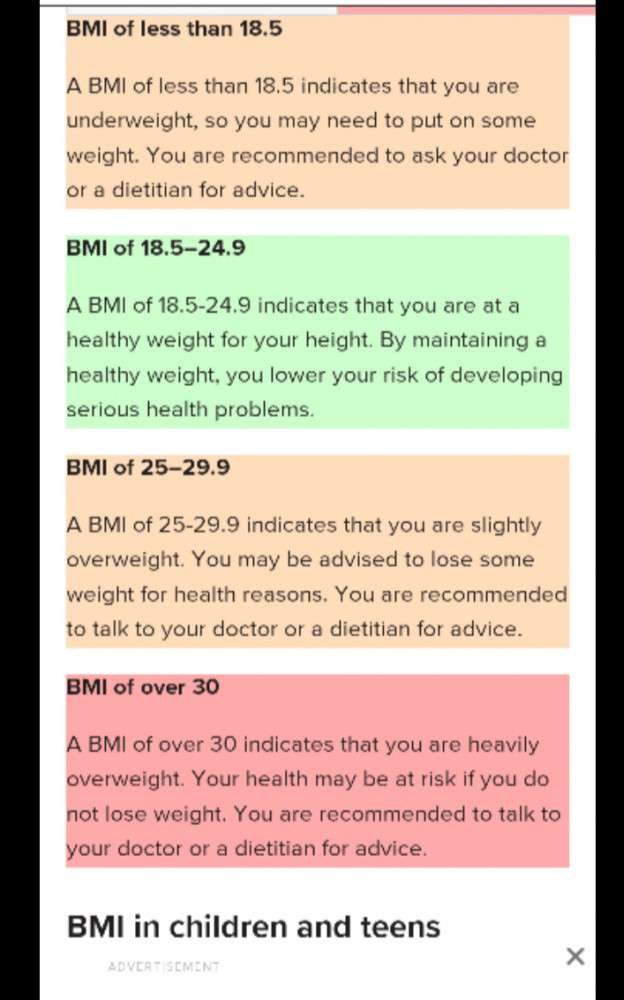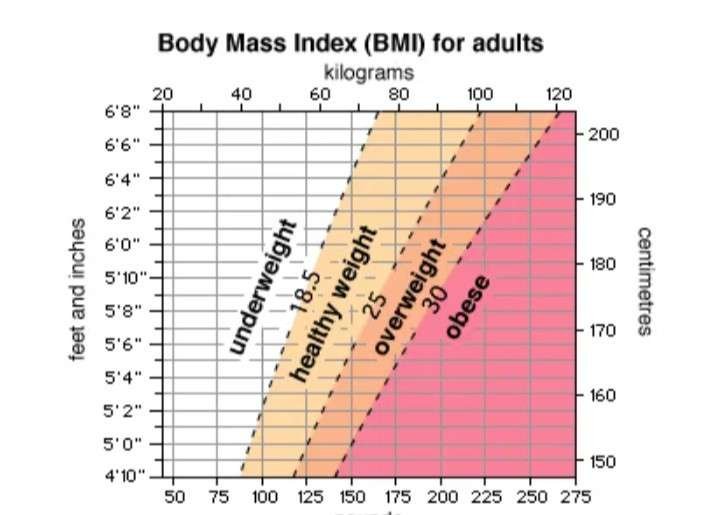Is BMI a Reliable Measure -Time to Measure Up
As an Amazon affiliate I earn from qualifying purchase at NO extra cost to you
When was the last time you received your BMI calculation? Did you understand your BMI score? Just so you know, you don’t have to stress out if your numbers are high. According to the latest information from medical experts your BMI assessment could be bogus. So, here’s the $64,000 question –Is BMI a Reliable Measure? 
Is BMI Bogus?
Americans keep putting on the pounds at an alarming rate according to Trust for America’s Health. The study found that nearly two-thirds of states now have adult obesity rates above 25 percent. As a result, the people ask “is BMI a reliable measure?” Despite what critics claim, BMI is still very popular in the medical field.
Critics Complains Surmount
The person who dreamed up the BMI said it was not designed to indicate the level of fatness in an individual. However, it soon became a useful tool for physicians. In fact, it was one of the hottest assessments of the 19th century.
Adolphe Quetelet Creates the BMI
The BMI was introduced in the early 19th century by a Belgian named Lambert Adolphe Jacques Quetelet. He was a mathematician, not a physician. He produced the formula to give a quick and easy way to measure the degree of obesity of the general population. The purpose of the BMI was to assist the government in allocating resources. However, those in opposition of it say it is unnecessary.
The BMI is scientifically unnecessary
The jury is still out whether it is scientifically nonsensical. Medical experts say there is no physiological reason to square a person’s height. Moreover, it ignores waist size, which is a clear indicator of obesity level. In this sense, is the BMI misleading?
Is the BMI Psychologically Wrong?
BMI makes no allowance for the relative proportions of bone, muscle, and fat in the body. But bone is denser than muscle and twice as dense as fat. Therefore, a person with strong bones, good muscle tone and low fat will have a high BMI. That said, why are athletes and fit health-conscious movie stars (who work out a lot) classified as overweight or even obese. How can this be a reliable indicator of fat?
Is the BMI a Reliable Indicator of Fat?
The CDC website sites that the “BMI” is a reliable indicator of body fat for people. However, critics beg to differ. Quetelet’s BMI shows if a person is fat or obese, they will have a high BMI. However, a high BMI does not mean an individual is even overweight, let alone obese. BMI haters see a different outcome. The BMI could mean the opposite. A person could be fit and healthy, with very little fat. Consequently, the authenticity of BMI continues to come to the surface in the U.S.
U.S. Going with the Flow of BMI
It is embarrassing for one of the most scientific, technological, and medicinally advanced nations in the world to base advice on how to prevent poor health and premature death (obesity) on a 200-year-old method. For the record, BMI was developed by a mathematician who was not a physician. In fact, he did NOT authorize the BMI to be used to measure body fat. As a result, BMI issues continue to cause controversy. To combat this controversy, a new assessment tool is ushered in.
Controversial Statistics
Unfortunately, a significant segment of the population (and in Quetelet’s time) leads sedentary lives and are not particularly active. The BMI formula assumes low muscle mass and high relative fat content. Critics say it gives exactly the wrong answer for another large section of the population, namely, the lean, fit and healthy. For this reason, body mass specialists have updated the original BMI calculations.
BMI Versus Relative Fat Mass
Body mass index (BMI) is currently the most widely used method to assess whether someone is overweight or underweight. But now scientists have come up with a new, improved alternative: say hello to the Relative Fat Mass, or RFM Index.
The relative fat mass (RFM) was proposed by Woolcott and Bergman. The team of researchers behind RFM say it is more accurate than BMI, and it can also be worked out with just a single tape measure. Therefore, you don’t need a set of scales to calculate it, as you do with BMI.
In case of RFM, it’s the distance around your waist in relation to your height that counts, rather than your weight. This gives a better idea of whether someone’s body fat is at a healthy level or not.
“We wanted to identify a more reliable, simple and inexpensive method to assess body fat percentage without using sophisticated equipment,” (Orison Woolcott – Cedar Sinai Medical Center. CA 2022). Researchers found that Relative Fat Mass is a better measure of body fatness than many indices currently used in medicine and science, including BMI. RFM may cancel out Quetelet’s BMI in the future. Therefore, critics believe that the old BMI is just a one-size-fit-all that lacks scientific authority. 
Is it Lacking Scientific authority?
The BMI is a single number between 1 and 100 (like a percentage) that comes from a mathematical formula, and it carries an air of scientific authority. But it is snake oil, according to its biggest opponents. They claim it is misleading the medical communities.
Are the Categories Misleading?
BMI calculations show distinct categories of underweight, ideal, overweight, and obese, with sharp boundaries that hinge on a decimal place. Critics say it is just a high profit ticket for insurance companies.
Is BMI a High Profit for Insurance Companies?
Cynical members of society suspect that the medical Insurance industry use BMI to keep their profits high. Insurance companies sometimes charge high premiums for people with a high BMI. Among such people are the fit individuals with good bone and muscle and little fat. These clients pay greater premiums. If this is the case, doctors will cash in and continue using BMI?
Why Doctors Continue to Use BMI?
Doctors continue to rely on the BMI. They don’t feel the need to use a more scientifically sound methods to measure obesity levels. Despite the BMI backlash, doctors still use BMI and it is still going strong.
BMI Still Has Many Blindspots?
Even though BMI is still one of the top measurement tools, it continues to be controversial in the medical communities. For example, it doesn’t account for muscle mass, it is race-biased, and it doesn’t reflect an average BMI for women. In fact, a study in The International Journal of Obesity
found that over 30 percent of people with “normal” BMIs were unhealthy for other reasons.
Does “Very Obese” Translate to Being Healthy?
Many of the participants labeled “very obese” by BMI were metabolically healthy. Janet Tomiyama, the study’s lead author, added “Many people see obesity as a death sentence. But the data show there are tens of millions of people who are overweight and obese according to BMI who are perfectly healthy.” Consequently, there are other issues with the BMI assessment. 
Another Issue with the BMI Calculations
If a woman with a “normal” BMI sees a doctor because she is unable to get pregnant, she may not be screened for polycystic ovary syndrome (PCOS). PCOS the leading cause of infertility. Moreover, doctors may incorrectly assume a smaller person wouldn’t have PCOS. These are valid issues that must be addressed. This one of the reasons BMI is due for an upgrade.
Latest BMI Updates
In my experience, having a BMI assessment was a good thing. I was able to remedy my higher-than-normal BMI and was able to get my health back on track. In my case, BMI helped me determine the status of my health. In addition, it helped me improve my overall health.
With all the scientific advancements in medicine, medical upgrades are always in the best interests of the public, at least in my humble opinion. However, some BMI screening trigger and worsen some disorders.
BMI Screening Triggers an Eating Disorder
According to the National Eating Disorders Associations (NEDA), BMI assessments used in schools leads to eating disorders. “The National Eating Disorders Association (NEDA) has concerns about BMI report cards. They believe BMI screenings, such as the ones done in schools, trigger individuals who are struggling with or vulnerable to eating disorders.
If a person is already struggling with an eating disorder, a “BMI evaluation may serve as a trigger for continued or worsening disordered behavior.”
Final Take Home
In a perfect world, there is no overweight or obese people and there is no reason for a BMI assessment. Since we have people who need screenings, the BMI is one of the most cost-effective ways to find out if you are high risk of developing a chronic illness or disease. In the mean time, keep drinking your bone broth and rock on, my friends.
Statistics show that when the body mass index (BMI) reaches a certain level, the person’s health status declines exponentially. Fortunately, there are many newer ways to assess body mass. However, BMI is still a viable tool, and will be for some time. However, due to the significant discrepancies related to BMI, people are opting for other assessment methods. https://youtu.be/HJz-5R9WCXI
If you like this post, please share it with family and friends. Also, feel free to leave your questions and comments in the space provided below. I always look forward to great conversation and feedback.
References
UCLA study on inaccuracy of BMI: https://newsroom.ucla.edu
- KPBS, Radio Top Reasons why BMI Is Bogus Discussion, Kevin Devlin
- Business Insider, BMI Charts are Bogus: Real Best Way to Tell If You’re a Healthy Weight, Marianne Guenot, Oct 3, 2022.
Rachele, Founder
mybluegenes.com (w)






Thank you for your sharing. I am worried that I lack creative ideas. It is your article that makes me full of hope. Thank you. But, I have a question, can you help me?
Thanks for the your compliment. I do the best I can ro educate, empower, and inspire. However, I am not a doctor and I do not give medical advice.
Just let me know what you nasic needs are and I’ll do my best to find a solution.
Have a great day.
Rachele
p.s. Send me an email: rcharinh21@gmail.com
Can you be more specific about the content of your article? After reading it, I still have some doubts. Hope you can help me.
Hi therte,
I highly recommend running any BMI questions by you primary care physician.
They have all the ins and outs and have the scoop on your medical history.
Happy Holidays!
Rachele
Your article helped me a lot, is there any more related content? Thanks!
Glad you found this article useful.
Rachele